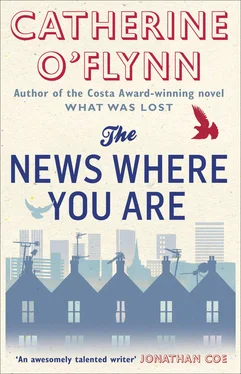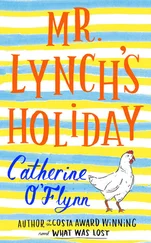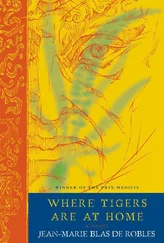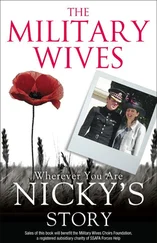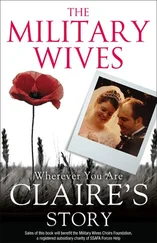He looked at the headstone now, picked from a brochure of similar stones, made in a factory in Wales, and reflected that as his father’s buildings were torn down, there was every chance this mass-produced slab would be the only monument left bearing his name.
He knew he should clean the stone. Should walk over to the stand pipe, splash water over his shoes as he tried to capture the sputtering flow in a plastic bottle and then labour with whatever tissues and old business cards he could find in his pockets to remove the worst of the accreted dirt, but he felt himself paralysed. He was trying to will himself to move when his phone rang, making him jump. The cheery tone, always grating, seemed particularly out of place in the setting. He fumbled in his pocket to silence it quickly:
‘Hello.’
‘Hi, Frank, it’s Jo from the coroner’s office. Is this a bad time?’
‘No, it’s fine. Actually I’m at a cemetery.’
‘That’s appropriate … Oh no. Are you at a funeral? I’ll call back.’
‘No, no — no funeral. There’s no one else here.’
‘Then why are you whispering?’
Frank hadn’t realized he was. He tried to speak in a normal voice. ‘Sorry. I don’t know.’
Jo laughed. ‘You’re not going to wake them up, you know.’
Frank looked around at the massed ranks of headstones and tried to ignore the sense of disapproval he felt radiating from them. ‘What’s up?’
‘That guy you were asking about. Michael Church.’
‘Oh yeah?’
‘Well, I just thought I’d let you know that the postmortem’s been done. Nothing really to report — heart failure.’
‘Oh — okay, thanks for letting me know.’
‘We’ll hold off on the burial, though, until the search for next of kin is completed.’
‘Have the police got anywhere, do you know?’ He heard Jo blow smoke.
‘Ah, Frank — you know what it’s like. They have pretty limited resources — I mean they’ll give him a reference number, they’ll look for paperwork, but you know there’s not going to be some dogged investigator pounding the streets and knocking on doors. He lived in local-authority housing and there’s no estate, so there’ll be no probate researchers getting involved. If you’re interested, you should look into it. I mean you already know he was once a friend of your mate, which is more than anyone else knows. Maybe you could find something out.’
‘Yeah, I wondered that. I didn’t know if it was stupid, though — I mean, if the police find nothing, why would I?’
‘Like I say — just because you have the time and the interest. I’m not trying to pressure you, but I just mean if you think you might find something out do it and don’t worry you’re going to get in the way of the police. I really don’t think there’s any danger of that.’
‘Okay, Jo, maybe I will.’
‘All right, well let me know if you find anything. It usually takes the police a couple of months before they give up and tell us to release the body. It’d be good to get someone at the funeral.’
Frank walked over to the nearest path and sat on a bench. He thought of Michael Church growing more and more isolated, occupying a progressively smaller space in the universe until finally he vanished altogether. It reminded him of the TV set they’d had at home when he was growing up. When you turned it off, the image would rapidly shrink down to a small white dot and then, after an unguessable interval of time, disappear. He knew, though, that the programmes were carrying on somewhere; he could just no longer see them. Sometimes he’d press his ear against the screen to see if he could hear the tiny voices of the television people hidden by the dark glass. For a moment he found himself doing the same now as he looked out upon the massed ranks of headstones, but all he could hear was the distant rumble of traffic.
He stretched and walked over to the stand pipe. He was eager to get out of the cemetery, to see Andrea and Mo, to go and push their way around a crowded shopping centre, to stake their place in the world, eat pizza, buy something they didn’t need and be among the living.
Douglas works long hours at the office. In the evening Francis sits waiting for his father’s return, listening for the key in the door. When Douglas enters, Francis always pretends to be busy with his homework, sitting with his school books open and arrayed on the floor around him in the hope that something there might catch his father’s eye and engage his attention. Sometimes it works. Douglas will pick up Francis’s maths book and talk animatedly about some concept that Francis doesn’t understand but pretends he does and nods his head appreciatively. Francis sees it as a weakness in himself that he prefers English to maths.
He’s never visited his father’s office and has no clear idea of exactly what goes on there. Douglas always reeks of cigarettes when he returns from work and Francis pictures him spending his days in a room full of serious-looking men, smoking and wearing hats, whilst his father tells them very important things about streets and houses. He imagines his father visible only in silhouette, his voice issuing clearly through the blue smog.
Over dinner Douglas asks Francis how his day at school has been, and Francis can never think of anything to say beyond, ‘Fine.’ His father never asks him about things on which he has interesting observations to make — like cars or vampires. Francis listens to the conversation between his parents. His mother uses more words, but she too often seems at a loss to respond to Douglas’s polite enquiries about her day, and he in turn seems not to listen to her answers. Francis hides his peas under his mashed potato and wonders when he might be allowed to turn the television on.
After dinner his father retires to his study to continue his work. Francis can’t imagine how there is so much work to do, or why his father never seems to finish. Sometimes he worries that maybe his father is a bit of a slow coach — like Simon Harris at school. He imagines his father frowning and chewing his lip over piles of exercise books in his smoke-filled office and feels a pang of sympathy for him.
He isn’t allowed in his father’s study on his own. The only time he gets to see the room is when his mother sends him in with a cup of tea. On such occasions he’s under strict instructions to create no disturbance. He is to knock, enter when summoned, place the cup and saucer on the desk and then leave. Sometimes his father is too engrossed to notice Francis. At others, he might engage him in conversation. Francis likes it when his father tells him something about whatever project he happens to be working on, but he lives in fear of being asked questions about it. His father sometimes holds up two sketches and asks him which aspect he prefers. Francis studies the images closely, hoping that an opinion will form in his head, and that it might be the right one. He can rarely tell the difference — they are just pictures of buildings.
He has been told that his father will be very busy for some time. He is working on designs for a new town. Before that he was very busy because he was working on Rhombus House and before that Worcester House and before that somewhere else that Francis can’t remember now. Sometimes at dinner his father speaks about the new town. He talks about gyratory road systems and enclosed shopping precincts; he talks about pedestrian bridges and shared recreation space. He has taken Francis to see the stretch of Worcestershire countryside where the new town will be built, but Francis finds it hard to imagine. There are no roads or streets, no green studded plastic Lego base board — just grass and mud. The idea that a town can appear fully formed in the middle of fields and trees is strange to him. He thinks of the dead leaves and the bones of animals lying buried in the soil underneath the pavements and playgrounds and it makes him shiver. There are no houses for miles around and he wonders who will live there. He imagines his father designing the inhabitants. Making them the right size and shape. He wonders what his father’s ideal citizen would look like and he wonders if he could ever be one.
Читать дальше
